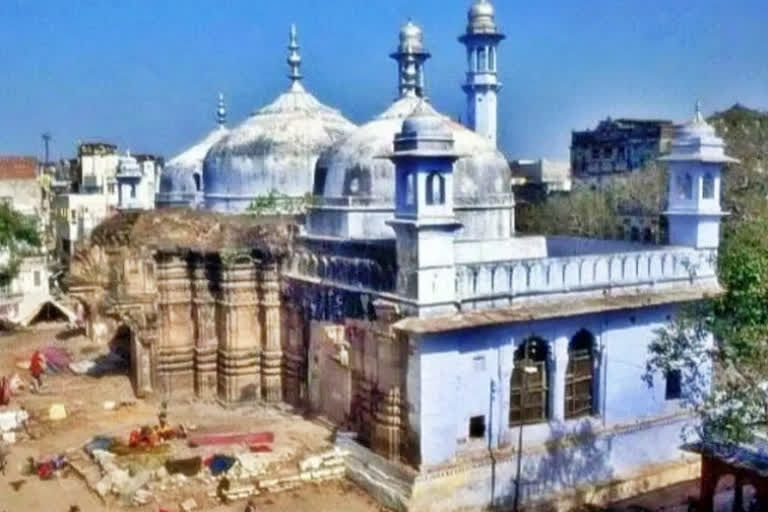New Delhi: Fresh litigations to claim ownership and prayer rights at historical sites of Gyanvapi masjid at Varanasi and of Shri Krishna Janmabhoomi-Shahi Idgah Masjid in Mathura by Hindu parties have brought into the limelight the 1991 law which was framed to put a closure on all such disputes over religious places by maintaining the position as existed on August 15, 1947.
The Places of Worship Act is an Act to prohibit conversion of any place of worship and to provide for the maintenance of the religious character of any place of worship as it existed on the 15th day of August 1947, and for matters connected therewith or incidental thereto.
While locking the position over ownership of religious places and the disputes as existed on August 15, 1947, the law, made during Prime Minister P V Narasimha Rao-led Congress government, had created the sole exception for the decades-old Ramjanambhoomi-Babri masjid dispute which was finally decided in 2019 by a five-judge constitution which cleared the way for the construction of a Ram temple at the disputed site and had directed the Centre to allot a five-acre plot for building a mosque.
The law and its provisions are being referred to in judicial proceedings by the Committee of Management Anjuman Intezamia Masjid, which manages Gyanvapi mosque in Varanasi, and other Muslim litigants to thwart adverse orders which may change the present characters of the religious places under dispute.
Watch: Old Video of alleged shivling found in Gyanvapi campus goes viral
They have been referring to the Places of Worship (Special Provisions) Act, 1991 and its Section 4 which bars filing of any suit or initiating any other legal proceeding for a conversion of the religious character of any place of worship, as existing on August 15, 1947.
The constitutional validity of the Act and its provisions are under challenge before the apex court which had issued notices to the Centre and others after taking note of petitions filed by BJP leaders Subramanian Swamy and Ashwini Upadhyay. The first plea was filed by Lucknow-based Vishwa Bhadra Pujari Purohit Mahasangh through advocate Vishnu Shankar Jain alleging that the law was unconstitutional and posed illegal hindrances in the path of legally reclaiming disputed religious sites like Mathura and Kashi.
Section 3 of the Act prohibits an individual and groups of people from converting, in full or part, a place of worship of any religious denomination into a place of worship of a different religious denomination -- or even a different segment of the same religious denomination.
The key provision, section 4 of the law, said that a place of worship's religious character shall continue to be the same as it existed as it was on August 15, 1947. The second clause of this provision, Section 4(2), says that any suit or legal proceeding concerning the conversion of the religious character of any place of worship existing on August 15, 1947, pending before any court, shall abate and that and no fresh suit or legal proceedings shall be instituted.
Also read: Muslim Personal Law Board asks centre, state govts to clarify stand on Islamic places of worship
Another proviso to Section 4, however, lays down that the injunction of the law shall not operate with respect to any place of worship which is an ancient and historical monument, or an archaeological site, or remains covered by the Ancient Monuments and Archaeological Sites and Remains Act, 1958 or any other law for the time being in force.
This provision is being used and cited by a Hindu NGO in the apex court to claim that the 1991 law does not apply in the Gyanvapi case. The legislation was also referred to by the apex court, in its Ayodhya verdict, by saying, in preserving the character of places of public worship, Parliament has mandated in no uncertain terms that history and its wrongs shall not be used as instruments to oppress the present and the future.
In the Gyanvapi case, the apex court on May 17 directed the District Magistrate of Varanasi to ensure the protection of the area inside the Gyanvapi-Shringar Gauri complex where 'Shivling' is said to be found in the survey and allowed Muslims to offer Namaz'. Now, pleas are being filed in Mathura's court seeking a survey of the Shahi Idgah mosque on the lines of Gyanvapi in Varanasi.
(with Agency inputs)



